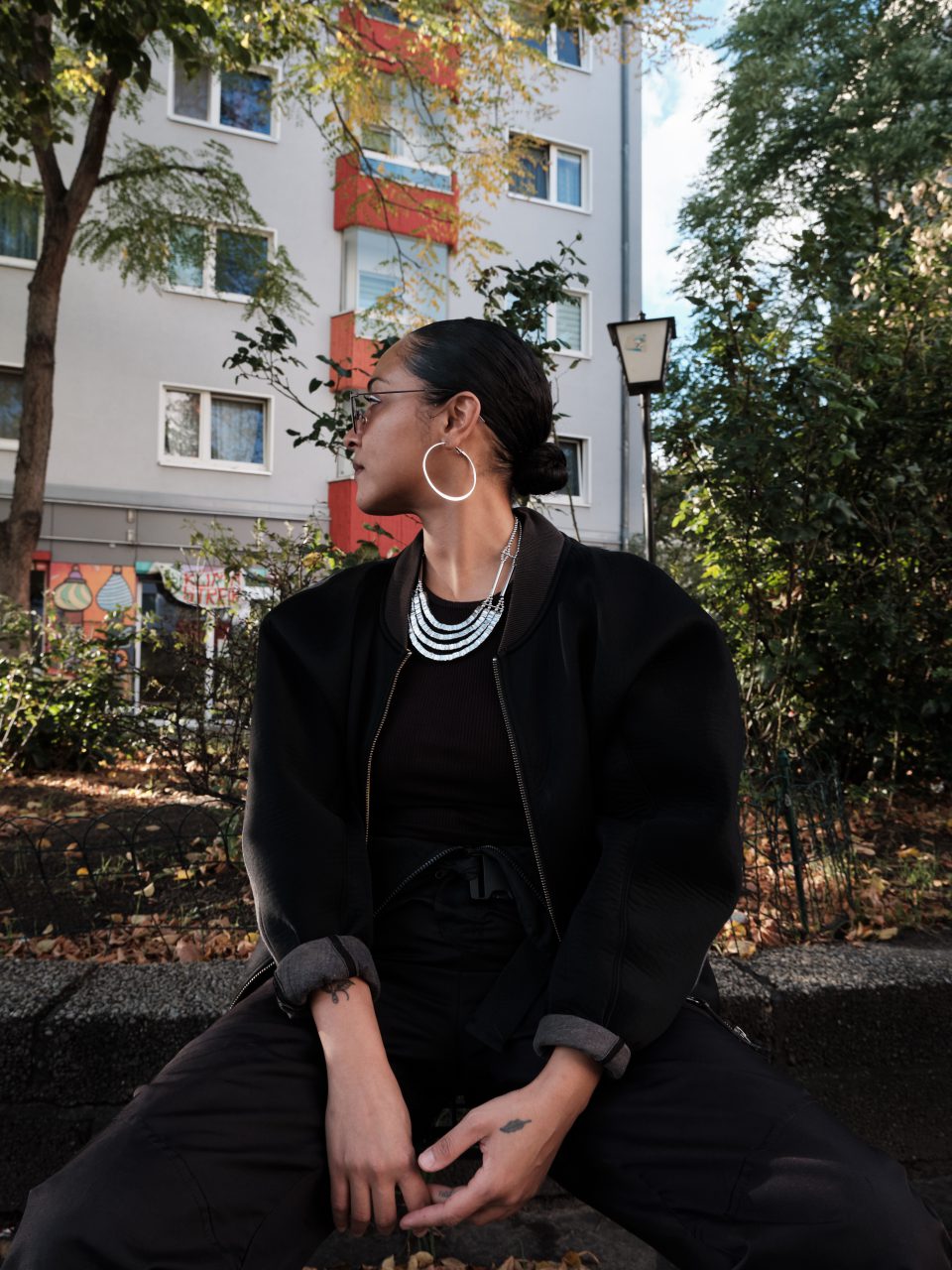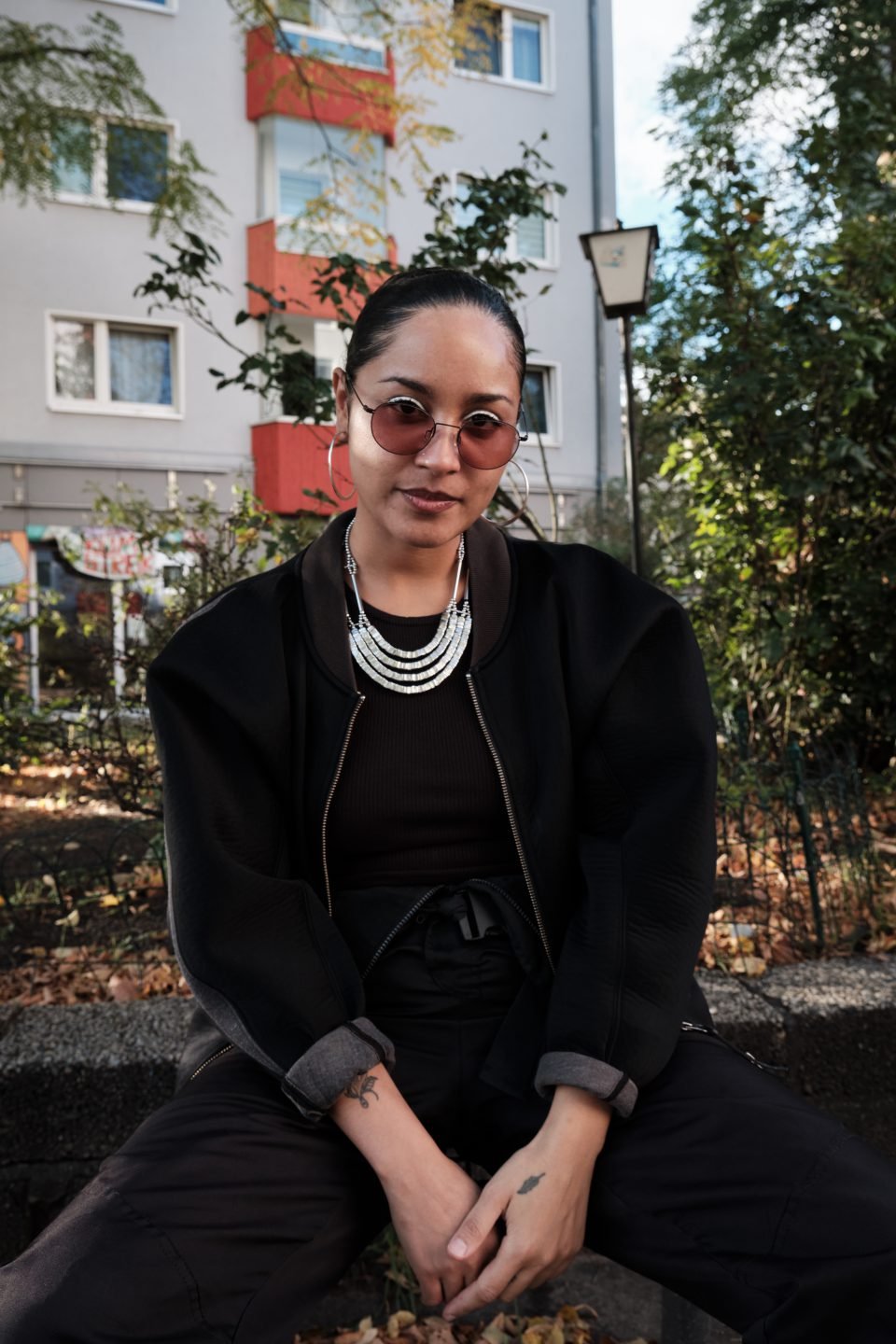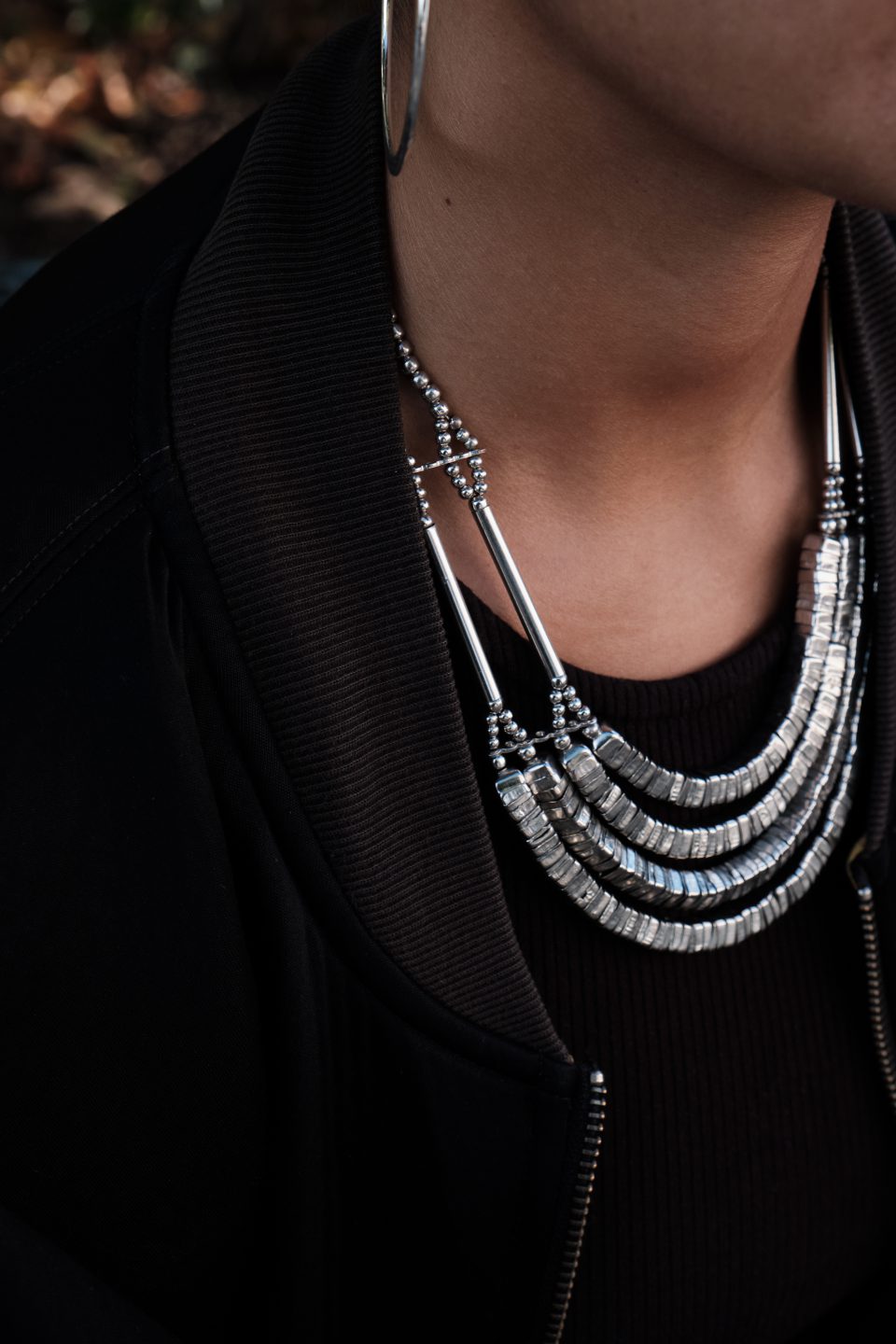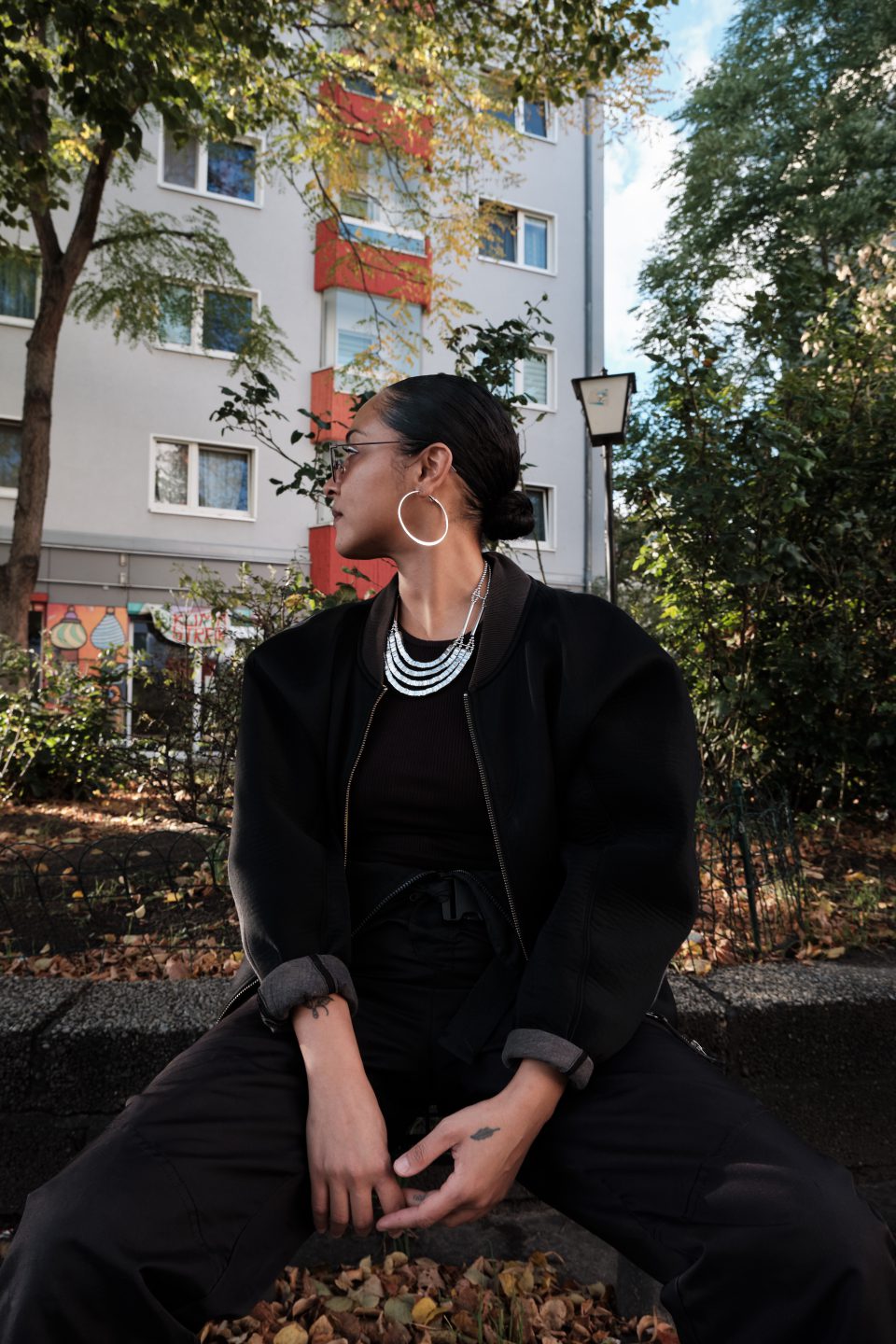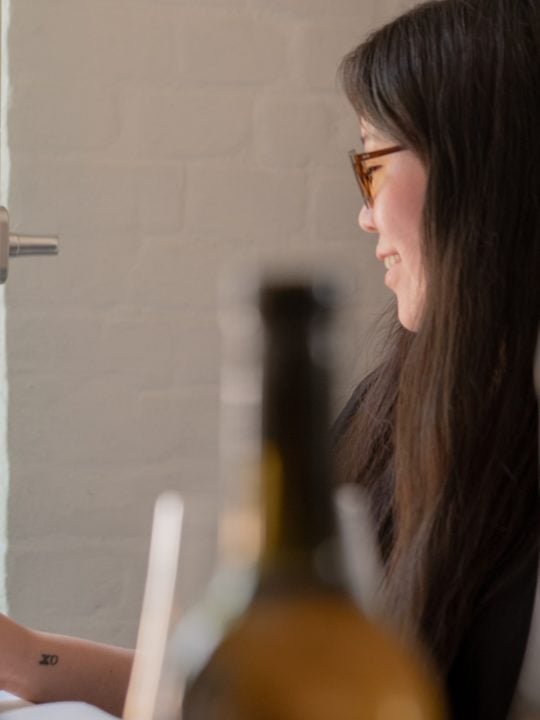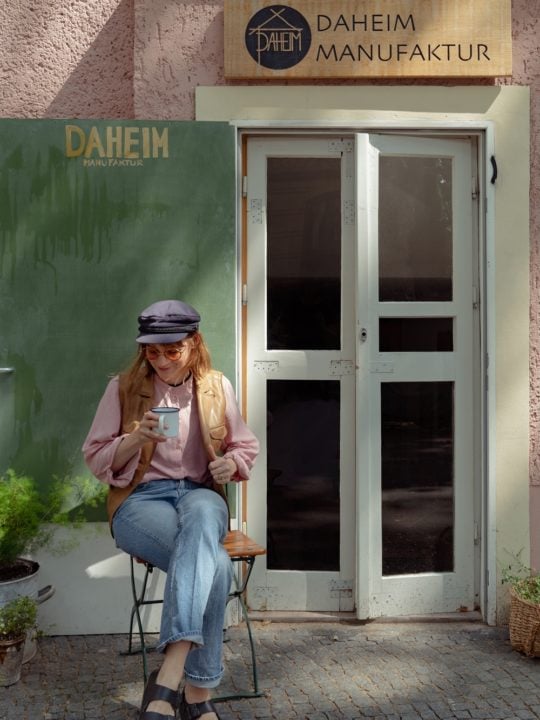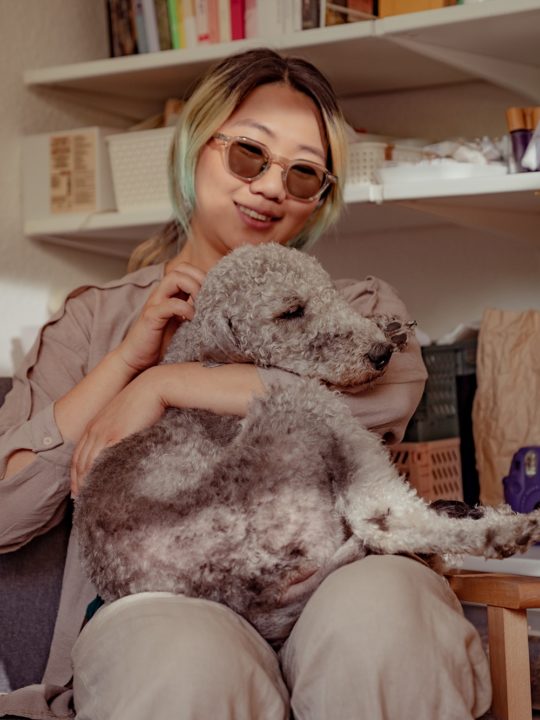MONIKA MARTINEZ ON NOTIONS OF HOME, IDENTITY AND WHAT IT TAKES TO CHALLENGE THE STATUS QUO
Katrice Dustin interviews Monika Martinez in part 1 of her 3 part interview series on Black creative women in Berlin.
(3 MINUTE READ)
Part 1 of 3 from an interview series by Katrice Dustin for YUN, highlighting the voices and talent of creative Black women in Berlin.
Creative Producer Monika Martinez has lived in more cities than many people manage to venture to in a lifetime. Hailing from Trindad, she moved to Miami at the young age of 16, and has since set up house in various US cities including NYC and Atlanta. The exposure to this handful of unique cultural landscapes has made a significant impact on her persona, as well as her noteworthy career, landing her roles as Executive Producer at Random Identities and as Creative Consultant at Comme des Garçons, alongside collaborations with a number of household names in fashion, music and art.
Monika is now the Director of her own Berlin-based creative studio, where she creates unique content for clients that is representative of the zeitgeist and our globalized world. We caught up with Monika between her move to Freidrichshain from Lichtenberg, where we contrasted our exploration of one of the city’s more notorious neighborhoods with a deep dive into some tangible ways we can strive for a more universally inclusive creative industry.
Can you tell me a bit about what you do?
I help bring together individuals across various fields who are seeking to advance Black creativity and opportunity through projects that are significantly centered around authenticity, representation, visibility, and intent.
What do you love the most about what you do?
I love the collaborative aspect of what I do. I love sharing space, working together, trying things out, building trust and seeking answers through creative processes.
You’ve lived in Miami and Trinidad. Can you tell me about these two places and how they shaped you?
My identity and these places are inextricably bound. Both places helped to establish my roots and a sense of belonging. My family is spread across these two places. So in the physical sense of the word, they represent a type of ‘home.’ These are complex places. Intense, hot, tropical, vibrant.
These are Black places, Afro Latino places. I have undoubtedly been shaped by their histories — the dialect, the rhythm, the heat, the sound.
The complexities of these cultures is expressed through my attitude, my body movements, my style, my pallet, my energy.
Have you lived anywhere else?
Yes. I feel lucky to have been able to move around in my early twenties after living and studying in Amherst, Massachusetts for four years. I received two grants allowing me to live and work in NYC, Atlanta and other cities scattered across the South before migrating to Berlin.
What brought you to Berlin and what made you decide to stay?
Love, in various forms. Cliche but very true.
Can you tell me about your current neighborhood of Lichtenberg?
This area is a mix of old industry and scattered parks. Hard and soft atmospherically. Because of this landscape, I’ve personally been able to find my work/life balance here. I also enjoy being outside of the more socially congested areas of Berlin. I moved to Lichtenberg about a year ago.
When I first visited Berlin about 10 years ago I was advised against living in here, this had to do with Litchenberg being a former Nazi stronghold.
People ask me, “How does it feel to live there as a Black woman?” I always say that I feel great, it’s others that feel some type of way…
What challenges have you faced as a BIPOC in the creative industry in Berlin?
Like many other places, the creative industry in Berlin can often be white and male driven. These spaces can often be sexist, racist and classist. So there are multiple challenges to be considered professionally and personally. Very few executive, creative roles, particularly in production are filled with cis and trans Black women, Black femmes or Black gender non- conforming people.
On the whole, what are some of the biggest issues facing Black creatives today?
Lack of opportunity and representation. One major problem is the lack of Black first person narratives. Historically, the narrative easily shifts to avoid accountability, Black opportunity, voice and visibility. So we want to continue to recenter it and advance our stories as seen and told by us.
What can be done to make a change and improve these issues?
Improvement and change requires small day-to-day individual actions, not just big statements and social media sweeps. As individuals, we each need to do the more difficult day-to-day work of becoming informed, and checking ourselves as well as the larger actions like continuing to challenge the industry to have equal representation across board and management as well as throughout creative roles. We also need to take the time we need to listen, learn, unlearn, and check in with ourselves and each other.
Be compassionate to ourselves and to each other.
What advice would you give to other BIPOC creatives in your specific field who are just starting out?
Be yourself. Practice self care and gratitude, ask questions, support other bipoc creatives, read books and always be on time!
See more from Monika here.

